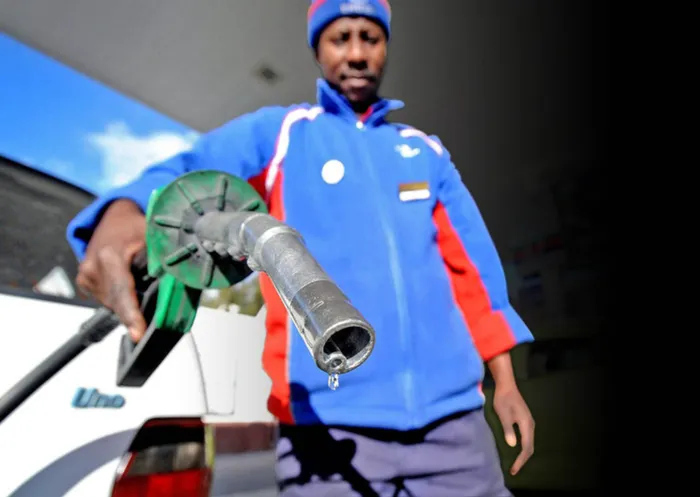Fuel costs going up and up

Cape Town 010912 Petrol prices are set to increase by 93c by Wednesday 05 September 2012. picture : neil baynes Cape Town 010912 Petrol prices are set to increase by 93c by Wednesday 05 September 2012. picture : neil baynes
Cape Town - Year on year, the local component of the petrol price – which includes taxes and fuel industry wages – has soared by almost three times as much as the annual rate of inflation.
This figure paints a bleak picture for South Africa, even on the back of petrol costs dropping by around 20c/litre yesterday, from R13.13 to R12.93.
Economist Mike Schussler said the fuel costs around R7.50/litre before it arrived on South African shores, and received a mark-up of just over R5.
Over the past 10 years, the local component of these costs had increased by about 162 percent – working out to an annual increase of 16 percent.
In that same period, the inflation rate had been at just under 7 percent.
Schussler said the trend would continue, with local costs spiralling out of control and even outstripping the global oil price, unless there was drastic intervention from the government.
“The way things are looking, the global petrol price per barrel is going to continue to go down. Falling tension in Iran and Syria will mean we will definitely see more decreases globally over the next three years.”
But while other countries reap the benefits of an improving market, South Africa will be left by the wayside as the local component of the petrol cost continues to rise.
Schussler said wages were a big factor behind the annual increases.
The cost of petrol was set to drop by 25c/litre until last week when fuel retailers and striking petrol attendants hashed out a new deal.
Fuel Retailers Association chief executive Reggie Sibiya confimred that the improved wages would see petrol attendants earn 11.6 percent more per hour, with 9 percent increases over the next two years,
This has resulted in a 5c/litre increase in petrol costs as retailers begin a process of “wage recovery”.
But Sibiya said this increase only represented a tiny portion of the ultimate pump cost.
“It’s about 3 or 4 percent of the final cost for the year and you will only see these increases once a year. It does not even make sense to mention them.”
He added the wage increases were also necessary for employees to bridge the gap between a minimum wage and a “living” wage.
However, Schussler said there was no point playing down the effect of wage increases on the rapidly rising local component of petrol costs.
While he agreed the price increase was relatively small, in conjunction with taxes and financial demands of the Road Accident Fund, wage increases in all sectors of the fuel industry had been driving up the local component for years.
Schussler said as a result, the cost of diesel – which was set to have a decrease this morning by a couple of cents per litre – was set to rise in most parts of South Africa.
For the Cape Chamber of Commerce’s Michael Bagraim this is unacceptable.
By law all petrol retailers are required to employ petrol attendants.
“It’s a part of our legislation, but the government is doing nothing to help the situation – and is actually guilty of driving up the local component of petrol prices through taxes.”
He called on the government to smooth over the process by stipulating set increases in petrol attendant’s salaries every year so businesses could plan ahead.
If something was not done soon, the local inflation of petrol prices could get out of control, resulting in a massive strain on local businesses.
“If they fail to do that, people will start lobbying – as they have done already – to have the current system replaced with a self-service one.”
This could have a drastic effect on the unemployment problem as about 70 000 petrol attendants would lose their jobs.
But Efficient Group economist Dawie Roodt said the recent petrol attendant strikes had been like “throwing a rock in a glass house”.
The resulting petrol price increase would earn petrol attendants the ire of motorists and businesses which were now forced to foot the bill of the wage hikes – seeing increases while many other countries had a moment of relief. - The Argus